Frequently Asked Questions
In brief, NCW means waste that is neither wrapped in a designated bag nor affixed with a designated label under "charging by designated bags/ designated labels".
For example, when a designated bag is used to dispose of waste, the waste concerned may be deemed as NCW if the bag is not tightly fastened, or if the waste is allowed to pierce through the bag.
Demonstration on how to properly
"wrap waste in a designated bag"
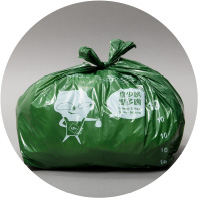
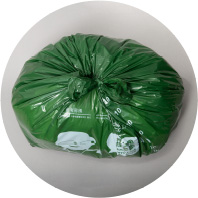
Examples of waste not properly
"wrapped in a designated bag"
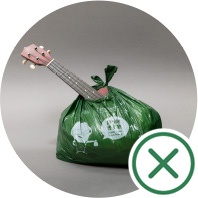
Part of the waste
protrudes from the
opening of the bag
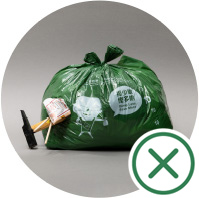
Waste is allowed
to pierce through
the bag
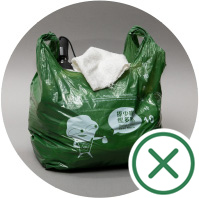
the bag is not
tightly fastened
Besides, any oversized waste (for example large furniture such as dining tables, bookshelves or mattresses) that cannot be properly wrapped in a designated bag will be considered a NCW if it is not affixed with a designated label when being disposed of.
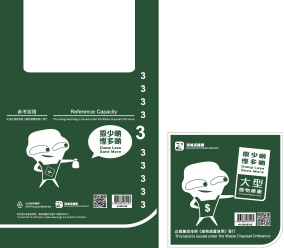
Designated bags and designated labels will only be sold at the authorised retail outlets. Members of the public should purchase designated bags and designated labels at authorised retail outlets or online platforms.
The EPD has published notice in the Gazette to stipulate the specifications for designated bag/ label, including their sizes, shapes, designs and materials for easy reference by the public on their authenticity. Each designated bag and designated label comes with anti-counterfeit features.
We encourage large scale waste producers (i.e., premises that generate large amount of daily waste, e.g., large facilities, factories, shopping centres, etc.) to apply for being the "Type B Account" holders. The registration procedure for the "gate-fee" accounts will be announced later.
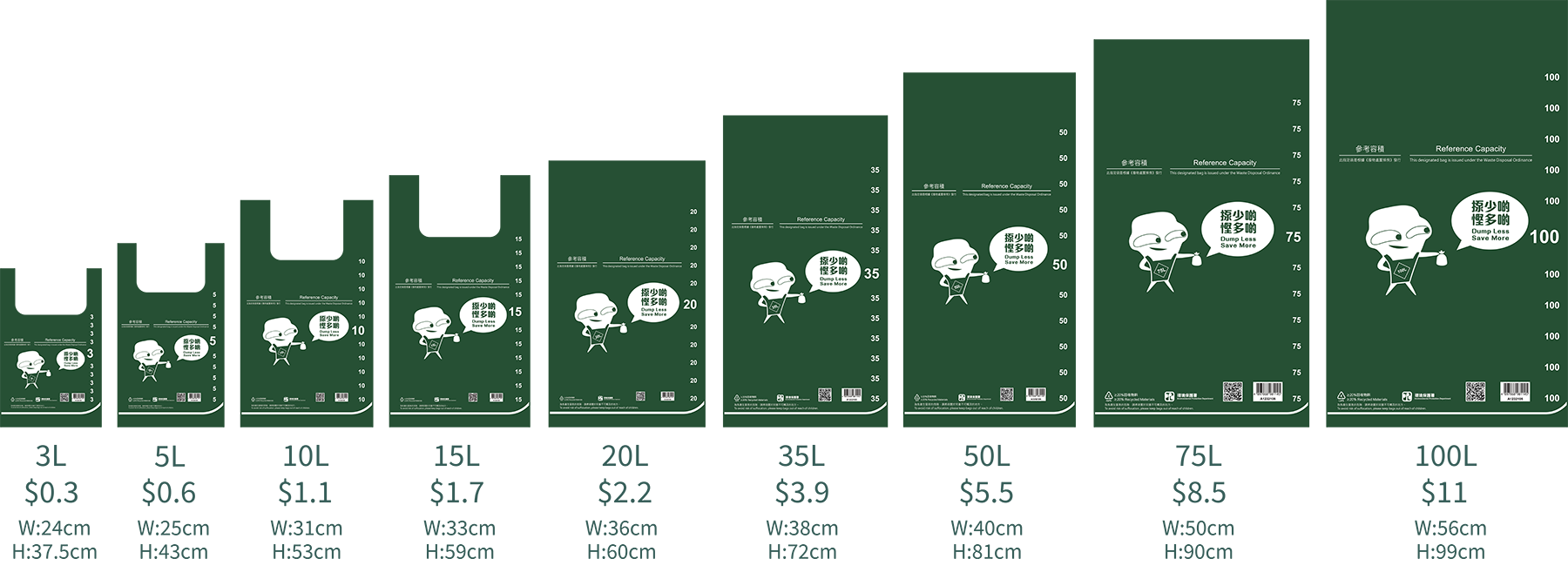
The EPD has rolled out a number of waste reduction and recycling schemes to enhance the community recycling network progressively, thereby facilitating the public practise waste reduction at source. Among these schemes include the Programme on Source Separation of Waste, under which free waste separation bins have been provided to over 2 700 housing estates/residential buildings and 1 200 commercial and industrial buildings, and 1 100 sets of kerb-side recycling bins have also been provided in rural areas for recycling plastics, waste paper and metals. Besides, the EPD is continuously expanding the community recycling network GREEN@COMMUNITY. As at March 2024, there have been about 220 public collection points, including 11 Recycling Stations emphasising on both environmental education and recycling support, 77 Recycling Stores located in close proximity to clusters of single-block buildings or set up in PRH estates and over 130 Recycling Spots operating weekly at fixed time and locations, for the collection of 9 common types of recyclables (including waste paper, metals, regulated electrical equipment and those lacking commercial recycling value, such as glass containers, plastics, small electrical appliances, fluorescent lamps, rechargeable batteries and beverage cartons) to specifically support residents living in clusters of residential buildings (including single-block residential buildings and “three-nil” buildings) that are lacking the space for setting up recycling facilities on their own to participate in separation at source and clean recycling. The first Recycling Store in an MTR station, GREEN@TSING YI, has just commenced service in February 2024, and the twelfth Recycling Station, GREEN@WONG TAI SIN, is also expected to provide services in the fourth quarter of 2024. Additionally, the EPD is progressively setting up small-scale Recycling Stores in 50 PRH estates to facilitate residents living in the PRH estates and nearby to practise clean recycling. 15 of these Recycling Stores have already commenced operation, and the other 30 will come into service gradually from the second quarter of 2024 after completion of renovation works. In the meantime, the EPD has arranged for the relevant operators to set up temporary collection booths (operating from 10 am to 8 pm on Mondays to Sundays) in those PRH estates by 1 March 2024 until the corresponding Recycling Stores come into operation, with a view to achieving seamless transition.
At present, GREEN@COMMUNITY also supports collection-at-door service for the aforementioned 9 types of common recyclables to a total of about 200 PRH estates and over 1 800 private housing estates/single-block buildings/villages/etc. A total of 76 sets of smart recycling bins have also been set up at various application points including Recycling Stations, Recycling Stores, PRH estates, private housing estates, villages, shopping malls, tertiary institutions, government premises, etc. for trial use by the public under the Pilot Programme on Smart Recycling Systems.
The recycling network formed by the aforementioned programmes has covered over 80% of the population in various districts of Hong Kong. Besides, to encourage more members of the public to participate in waste separation for recycling, the EPD launched the GREEN$ Electronic Participating Incentive Scheme in 2020, and there are over 500 000 registered users as at the end of February 2024. When carrying out recycling at GREEN@COMMINITY or through smart recycling bins, members of the public can earn GREEN$ points for redemption of gift items or daily necessities.
Currently, all Recycling Stores are basically open from 9 am to 7 pm all year round, including Sundays and public holidays (except for the Lunar New Year’s Eve to the third day of the Lunar New Year, the New Year’s Eve, the Mid-Autumn Festival, the Winter Solstice and the Christmas holidays, which are subject to special arrangements). In response to the service demand of the public, the EPD has adjusted the operating hours of most of the Recycling Stores in PRH estates (including the temporary collection booths mentioned above) to 10 am to 8 pm. The EPD will keep reviewing the operation of all community recycling facilities and the specific needs of individual district for recycling facilities, and will proactively explore various measures such as increasing the number of Recycling Spots near public markets and “three-nil” buildings and extending the service hours, etc. We anticipate that the number of public collection points across the territory will increase to about 500 in August 2024, so as to enhance the community recycling network to help the public practise waste separation and recycling properly.
The EPD is actively implementing various food waste collection initiatives, including support on the collection of food waste from commercial and industrial sources and households. Currently, there are approximately 900 collection points across the territory, including food factories, public markets, cooked food centres, wholesale markets, hospitals, government facilities, tertiary institutions, school lunchbox suppliers, hotels, shopping malls, restaurants, and residential estates, etc.
For PRH estates, the EPD will complete the installation of more than 700 Food Waste Smart Recycling Bins (FWSRBs) in 213 PRH estates across the territory by August this year. For private residential buildings, EPD has been supporting the installation of FWSRBs in private residential buildings and rural village through the Recycling Fund and the Environment and Conservation Fund. Besides, private housing estates with a total household number of no less than 1 000 units can also participate the “Pilot Scheme on Food Waste Smart Recycling Bins in Private Housing Estates” to apply for the installation and relevant maintenance services for the FWSRBs, for a period of two years free of charge. In addition to FWSRBs, the EPD also provides traditional covered food waste recycling bins for food waste collection in private residential buildings through the “Pilot Scheme on Food Waste Collection”.
As for residential buildings without sufficient space to install FWSRBs, the EPD set up FWSRBs at three Recycling Stations in the vicinity of residential areas, namely GREEN@SHAM SHUI PO, GREEN@EASTERN, and GREEN@SAI KUNG to conduct trial domestic food waste collection from the neighbourhood at public collection points, and it will be extended to GREEN@SHATIN in April The first public collection point to be set up at the wet market of the Food and Environmental Hygiene Department (FEHD) has also commenced at Lockhart Road Wet Market as a trial in April. Also, the EPD has set up “Recycling Spots” near village houses or single-block residential buildings, and clusters of restaurants in Sha Tin District to collect food waste generated from nearby domestic households and food premises concurrently in the form of kerbside collection booths at fixed time and locations. In March to April 2024, we have also set up 55 night-time Recycling Spots in various districts to provide more convenient recycling outlets for the public.
To facilitate the recycling of food waste produced by street-level restaurants, the EPD is progressively setting up food waste collection points at refuse collection points (RCPs) under the FEHD. It is anticipated that the number of collection points will increase to nearly 100 in the second quarter of 2024. Both eateries and the public can recycle food waste at the collection points. In addition, the EPD has set up mobile booths or used trucks at locations concentrated with restaurants to collect food waste from “food and beverage clusters” in fifteen districts.
The EPD will continue to set up more public food waste collection points at other suitable premises.
For more frequently asked questions about MSW charging, please refer to relevant Best Practice Guides
Contact Us
+852 2838 3111

